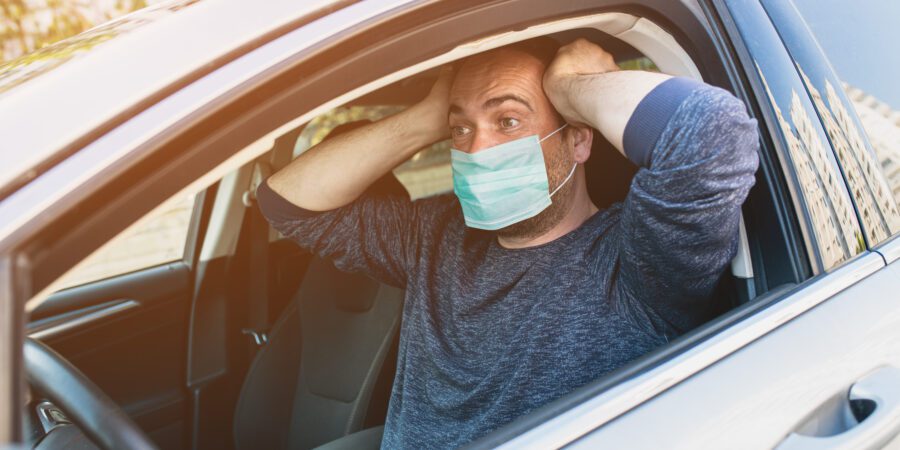Is There any Link Between the two?
The laws of supply and demand apply to many fields beyond economics. Among other things, they also predict rates of car crashes.
All drivers are in the market for a car accident, whether they choose to be or not.
The Principles
The laws of supply and demand have two elements, price and availability, along with two actions, increase and decrease, which altogether create four possibilities.
1- When the price of a consumer good, such as a car, goes up, demand for it goes down. For example, if the price of Snickers bars were to rise to $10.00 for one regular size bar, demand for them would drop, because nobody wants to pay such a ridiculous price for a Snickers, when they could get something else like a Milky Way for one-tenth the price.
2- On the other hand, if price of a consumer good goes down, then demand for it will increase. Example: if the price of Snickers bars dropped to 5 cents for a regular sized bar, everyone with a sweet tooth would want to buy them because they could then bue 20 Snickers bars for the price of one Milky Way.
Of course, these first two examples exaggerate to illustrate the point.
3- If availability of a consumer good goes down, price goes up. Consider the market for vintage 1970s Chevrolet Corvettes. These items are very expensive and sell for more than they did when they were brand new because they are rare, and serious buyers are willing to pay high prices for the remaining few that are still around.
4- If availability of a consumer good goes up, the price will then go down. This is the old, “dime a dozen” mentality. When a consumer good becomes available in greater numbers, sellers compete with each other for sales to a limited number of buyers, and prices drop. For example, on the opposite end of the market for vintage Corvettes is the market for the Ford Crown Victoria. These cars flooded the used car market in recent years in the form of retired taxicabs and police cars, and as a result, they frequently sell for approximately 20% of their original price.
The Peltzman Effect
In 1975, University of Chicago economist, Samuel Peltzman released his theory of Compensating Behavior, later referred to as the Peltzman Effect. Simply put, his theory states that when some behavior becomes less risky or costly, more people will engage in that behavior, simply because it is less risky or costly.
How Does This Apply to Car Crashes?
In Los Angeles, along with everywhere else in the United States where Coronavirus stay-at-home orders have eliminated traffic congestion, individual motorists are largely unrestricted by other vehicles on the roadway, and are free to drive with far less consideration for other vehicles than under normal circumstances. Naturally, fewer cars on the road means fewer accidents, especially since the relatively few cars on the roadway are spaced apart much farther than usual.
This causes a reduction in the availability of accidents and therefore, as predicted by rule #3 above, the price per accident, (meaning the level of seriousness of the average accident) has risen. Los Angeles has seen an increase in serious accidents resulting from collision with fixed objects and rollovers (two types of accidents that indicate negligent or reckless behavior by the driver) since the Coronavirus stay-at-home order has taken place.
The so-called “availability” of car crashes differs from the “availability” of consumer goods because drivers are not purposely getting into accidents, (as they would purposely buy goods) but nonetheless are finding themselves crashing out of a lack of caution as compared to the level of caution observed under normal circumstances.
In other words, if a driver isn’t too concerned with crashing, because there aren’t many cars around to crash into, he then becomes less concerned with being careful to avoid crashing, and therefore is more likely to crash
In short, the light load of traffic on roadways caused by the Covid-19 shutdown has created carelessness among drivers, which translates into fewer, but more serious accidents. This is a classic example of the Peltzman Effect.
An unfortunate by-product of this Coronavirus shutdown has been unnecessary deaths of people arising out of this phenomenon.
Other Collateral Damage Caused by Stay at Home Orders
Many medical doctors have going against the popular grain and spoken out to warn that the isolation involved in self quarantine will increase health hazards such as drug use, alcoholism, domestic violence, depression, and suicide, just to mention a few.
Dissent
SpaceX founder, Elon Musk, was harshly criticized for stating that a person is more likely to die from a traffic accident than by infection with the Coronavirus, but besides exercising his freedom of speech, he makes a strong point. Every year, approximately 1,350,000 million people die from car crashes each and every year.
Contrast that with the estimated 188,000 worldwide deaths attributed to coronavirus as of 04/23/2020, and any reasonably informed reader can estimate year end tolls that demonstrate a greater threat from vehicle crashes than from the Coronavirus.
Unfortunately, our society has reached a point at which a person is no longer free to voice his opinions, whether based in science or not, without being attacked and vilified if his opinion differs with the popular opinion broadcast by the mainstream media.
Whereas prevalent society in the United States used to host a marketplace of ideas, where all people were free to voice their opinions and audiences were free to find truth or falsity in those opinions, today’s society now employs censorship and bullying tactics, as experienced by Elon Musk, for one example. The old adage, “I don’t agree with what you’re saying, but I will defend your right to say it with my life,” has been replaced with muckraking and demonizing techniques.
Under the guise of “violating our user agreement,” YouTube has removed several videos that make scientific assertions which differ from those currently broadcast by the World Health Organization, the Center for Disease Control, and the popular media.
Other Historical Accident Increases
During the late 1980s and early 1990s, the passing of mandatory seatbelt laws caused an increase in car crashes because drivers felt safer wearing seatbelts, and this lowered the “price” of an accident (by reducing the level of personal injury suffered if a driver crashed) and therefore increased so-called “demand” for accidents, as predicted by rule #2 above, as well the Peltzman effect.
Whether you’re in agreement with government efforts to stay at home, or you believe economic damage to society is more harmful than Covid-19, your involvement in a traffic accident creates a definite need for a personal injury lawyer. Other, at-fault parties might attempt to short-change your just compensation for losses caused by their wrongful actions, or even paint you as the cause.
If you suffered bodily injury, property damage, or financial loss associated with a vehicle accident during the current and unique traffic circumstances created by the Coronavirus shutdown, contact an experienced personal injury attorney who has the skill to prove the fault of the offending driver, which possibly reflects more than mere human error.


